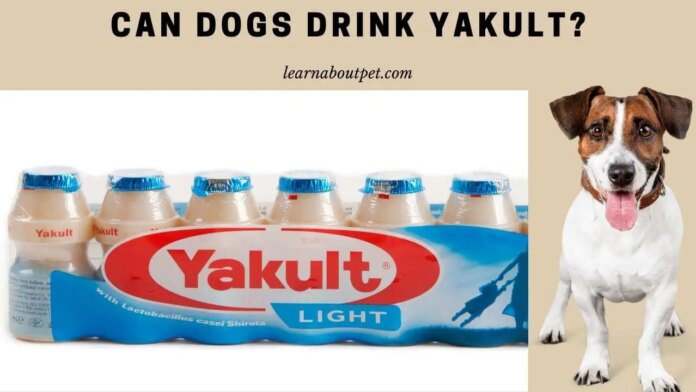Hey there fellow pet parents! Ever caught your pup giving those puppy eyes while you’re enjoying your daily Yakult? I totally get it – my dog does the same thing! Today let’s dive deep into whether our four-legged friends can safely enjoy this popular probiotic drink.
The Quick Answer
TL;DR While Yakult isn’t toxic to dogs, it’s not really recommended as a regular treat. There are better probiotic options specifically made for our furry friends.
What’s Actually in Yakult?
Before we go any further, let’s break down what’s inside that tiny bottle:
- Skimmed milk
- Sugar
- Glucose-fructose syrup
- Live bacterial cultures (Lactobacillus casei strain Shirota)
- Natural flavors
- Water
Why Some Pet Parents Consider Giving Yakult to Dogs
Lemme tell you why some people think about sharing Yakult with their doggos
- Digestive Health: Just like humans, dogs can benefit from probiotics
- Immune System Support: The good bacteria might help boost immunity
- Tummy Troubles: Some believe it helps with digestive issues
The Not-So-Great Stuff About Giving Yakult to Dogs
Here’s where things get a bit complicated, fam:
1. Sugar Content
Yakult’s got quite a bit of sugar – not great for our fur babies! Too much sugar can lead to:- Weight gain- Dental problems- Diabetes risk- Hyperactivity
2. Lactose Issues
Many dogs are actually lactose intolerant! Symptoms might include:- Diarrhea- Vomiting- Stomach upset- Gas (and trust me, nobody wants more doggy gas!)
3. Artificial Ingredients
While Yakult’s pretty natural, some ingredients aren’t ideal for dogs.
Better Alternatives for Your Pup
Instead of Yakult, consider these options:
-
Dog-Specific Probiotics
- Made specifically for canine digestive systems
- Proper dosage for dogs
- No unnecessary additives
-
Natural Probiotic Foods
- Plain yogurt (in moderation)
- Kefir (unsweetened)
- Fermented vegetables
-
Vet-Recommended Supplements
- Professional-grade probiotics
- Proper formulation
- Safe dosages
What to Do If Your Dog Accidentally Drinks Yakult
Don’t panic! If your curious pupper managed to snag a bottle, here’s what to do:
- Stay calm (seriously, it’s probably fine!)
- Monitor your dog for any unusual symptoms
- Make sure fresh water is available
- Contact your vet if you notice:
- Severe diarrhea
- Vomiting
- Unusual lethargy
- Loss of appetite
Tips for Supporting Your Dog’s Gut Health
Want to help your doggo’s digestive system? Try these:
-
Consistent Diet
- Stick to regular feeding times
- Avoid frequent food changes
- Use quality dog food
-
Regular Exercise
- Daily walks
- Playtime
- Mental stimulation
-
Stress Management
- Maintain routines
- Provide comfortable spaces
- Regular attention and love
The Bottom Line
While Yakult isn’t gonna poison your pup, it’s probs not the best choice for their probiotic needs. There are way better options out there specifically designed for dogs. If you’re worried about your dog’s digestive health, have a chat with your vet – they’ll hook you up with the perfect solution!
FAQs About Dogs and Yakult
Can puppies drink Yakult?
Nope! Puppies have super sensitive tummies and need special care with their diet.
How much Yakult is too much for dogs?
Any amount is technically too much – better stick to dog-specific probiotics!
Will one sip of Yakult hurt my dog?
Probably not, but why risk it when there are better options available?
Can Yakult help with my dog’s diarrhea?
Not really – it’s better to use proper veterinary treatments for digestive issues.
Final Thoughts
Your doggo’s health is important, and while sharing everything with them might seem nice, some human foods (including Yakult) are best kept for human consumption only. Stick to pet-specific products and always consult with your vet if you’re unsure about anything related to your fur baby’s diet.
Remember – a healthy pup is a happy pup! Keep those tails wagging with proper nutrition and care, and save the Yakult for yourself!
Disclaimer: This article is for informational purposes only and isn’t meant to replace professional veterinary advice. Always consult your vet before making changes to your dog’s diet.












